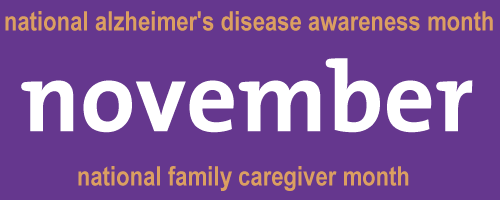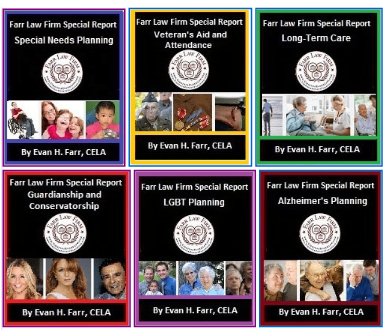New Law Helps More People Live Independently
Published: Fri, 11/13/15
 |
New Law Helps More People Live IndependentlyIf you cannot view the image below, please read the article on our blog. Q. My widowed 82-year-old mother lives in the home she has owned for more than 60 years. She is legally blind, and has severe arthritis and diabetes, but she insists on staying in her home for now. In my opinion, in order for her to remain in her current independent living
situation, she really needs assistance driving to and from appointments; managing her diet; and giving herself her daily insulin shots. I would love to help, but my busy work and family life only allows me and my wife enough time to come by after work and on weekends to assist her.
I recently read about the PACE program, which seems like a good option for someone like my mother who wants to live independently for as long as they can, and I heard that new laws are expanding the program. Do you know more about it and what my mother needs to do to qualify? Thanks for your help!
A. Programs of All-Inclusive Care for the Elderly (PACE®) deliver the entire continuum of care and services to those with chronic care needs, while maintaining their independence in their home for as long as possible. First authorized in the Balanced Budget Act in 1997, PACE now serves 35,000 people through 116 programs in 32 states. Medical and long-term services available through PACE can include medical care and
prescription drug services; physical and occupational therapy; day and respite care; and medical specialties such as dentistry, optometry, and podiatry.
Previously, PACE was limited to individuals who are age 55 or older, certified by their state to need nursing home care, able to live safely in the community at the time of enrollment, and live in a PACE service area. On November 5, President Obama signed the PACE Innovation Act
(PIA) into law. The new law will allow older adults, who do not yet meet the standard for nursing home level of care, and others who may not meet the age requirements, to participate in PACE. It was also enable the Centers for Medicare & Medicaid Services (CMS) to develop pilot projects, based on the successful PACE Model of Care.
The next step is for CMS to develop a process to accept, evaluate, and measure proposed pilots based on the PACE model. Providers already have started to explore what changes in the model would be necessary to serve other populations that need consistent access to care and services.
How Does PACE Work?
PACE was created as a way to provide family, caregivers, and professional health care providers the flexibility to meet health care needs and to help those, such as your mother, who wish to continue living in their own homes.
Below are details on how PACE works:
How Do You Enroll in PACE?
With the new law, your mother can join PACE if she lives in the service area of a PACE organization, and is able to live safely in the community with the help of PACE services at the time she enrolls. For those in the Fairfax area, InovaCares for Seniors Fairfax is the sole
PACE provider, and they can be reached at 703-239-5888, or by email at pace@inova.org. There are also additional locations in the Metro DC area. You can find an interactive map of locations here.
What if Your Mother Needs More Care Than PACE Can Provide?
When nursing home care is imminent, it is wise to begin planning if you haven't done so already, since nursing homes in the DC Metro area are $10,000-$14,000 a month—an amount that can be devastating to most
families.
Life Care Planning and Medicaid Asset Protection is the process of protecting your assets from having to be spent down in connection with entry into a nursing home, while also helping ensure that you or your
loved one get the best possible care and maintain the highest possible quality of life, whether at home, in an assisted living facility, or in a nursing home. Call one of our offices to make an appointment for a no-cost initial consultation:
Fairfax Elder Law: 703-691-1888
Fredericksburg Elder Law: 540-479-1435 Rockville Elder Law: 301- 519-8041 DC Elder Law: 202-587-2797 -------- Critter Corner: Multigenerational Playgrounds  Dear Commander Bun Bun,
Last time my daughter, Katie, visited her grandmother, she mentioned that they went to a "playground for grandma." I can't imagine my 70- year old mother on the swings or climbing on the monkey bars. Katie reiterated that "it was a playground for grandmas and grandpas, and kids." I never heard of such a thing. Do you know
anything about this?
Thanks!
Cee Sawe-Enswinggs
----
Dear Cee,
Playgrounds designed specifically for seniors have been around in England, Finland, Germany, and throughout Asia, and now the idea is taking off in the U.S. They feature low-impact exercise equipment designed to promote balance and flexibility, and sometimes have elliptical-type machines, static bikes, and body flexors. And, in the U.S., "senior playgrounds" are meant for multiple generations, not just for
seniors.
Why are these playgrounds beneficial?
DC-based, KaBOOM!, is a nonprofit organization that is working in partnership with the Humana Foundation to build multigenerational playgrounds throughout the country. Currently, KaBOOM!, has built 53 multigenerational playgrounds across America that have served 135,471 kids and 61,500 seniors, according to Sarah Pinsky, Director of Client Services at KaBOOM!. Some locations include New York City, Miami, Harrisburg, Mobile, Jackson,
Greensboro, Seattle, Cedar Rapids, Kansas City, Tulsa, Nashville, Houston and Fort Worth, New Orleans, San Antonio, Riverside and Tucson. Read this article for additional details.
Hope a multigenerational playground comes to our area soon! Commander Bun Bun --------
Sign up for our FREE Special Reports and get the answers to your burning questions! Just click on a cover below! |

|
||
|
This email was sent to
.
|










